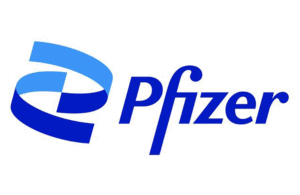 Pfizer (NYSE:PFE) has announced that the FDA has approved its supplemental New Drug Application (sNDA) for Cibinqo (abrocitinib) for moderate-to-severe atopic dermatitis. The approval expands the indication for the drug, which was previously only approved for adults with the skin condition in early 2022.
Pfizer (NYSE:PFE) has announced that the FDA has approved its supplemental New Drug Application (sNDA) for Cibinqo (abrocitinib) for moderate-to-severe atopic dermatitis. The approval expands the indication for the drug, which was previously only approved for adults with the skin condition in early 2022.
The expanded indication includes adolescents between the ages of 12 and 18 whose disease is not adequately controlled with other systemic drugs or when their use is inadvisable.
Cibinqo is a potential blockbuster
In 2020, Pfizer had estimated that abrocitinib would eventually garner $3 billion in peak annual sales.
The company is also investigating its potential in prurigo nodularis and pruritus.
The systemic JAK inhibitor is in the same class as baricitinib from Incyte and Lilly and upadacitinib from AbbVie.
The FDA updated the prescribing information for Cibinqo to include data from the JADE TEEN clinical trial, which evaluated the 100 mg and 200 mg doses of the drug versus placebo in adolescents. The randomized, double-blind, placebo-controlled trial enrolled 287 patients and assessed improvements in skin clearance, itch, disease extent and severity through various measures, including the Investigator Global Assessment (IGA), Peak Pruritus Numerical Rating Scale (PP-NRS), and Eczema Area and Severity Index (EASI).
The JADE TEEN study
The randomized, double-blind, placebo-controlled JADE TEEN trial assessed improvements in skin clearance, itch, disease extent and severity by evaluating various measures, including the Investigator Global Assessment (IGA), Peak Pruritus Numerical Rating Scale (PP-NRS) and Eczema Area and Severity Index (EASI).
The JADE TEEN study enrolled 287 patients.
The prescribing information for Cibnqo now includes data from five randomized, placebo-controlled clinical trials and a long-term extension study, involving more than 1,600 patients who received the medication.
The FDA label for the drug has a black box warning describing an increased risk of infection, major adverse cardiovascular events and malignancies. The warning is similar to those issued for other JAK inhibitors.
To date, the Cibingo trials have shown that the drug has a consistent safety profile and provides significant improvements in skin clearance, disease extent and severity, as well as rapid reduction in itching for some patients with atopic dermatitis. The most commonly reported adverse events among patients treated with Cibingo for up to 16 weeks include nasopharyngitis, nausea and headache, with the frequency ranging from 7.9% to 14.5% depending on the dose.